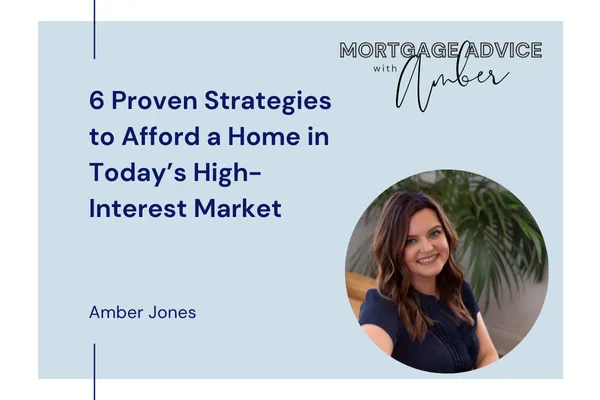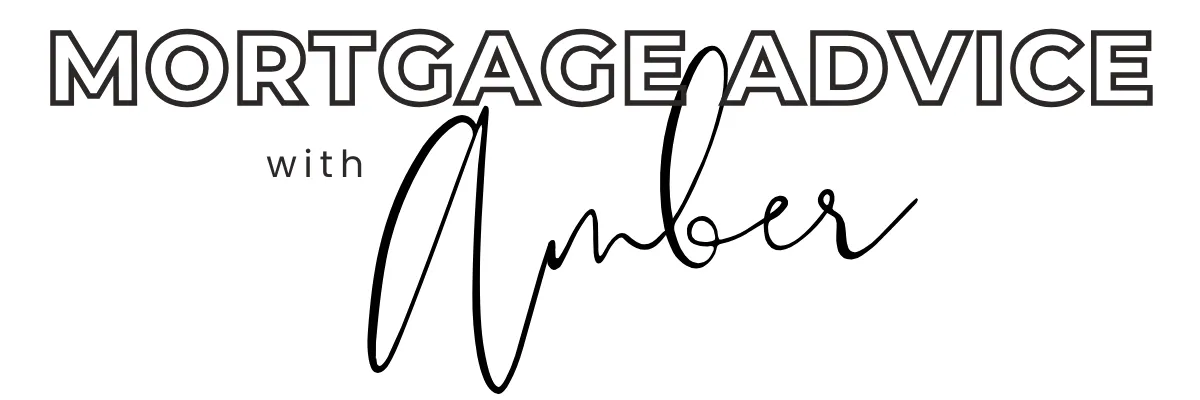
6 Proven Strategies to Afford a Home in Today’s High-Interest Market
If you’ve been wondering how people are still buying homes in today’s high-rate, high-cost environment, you’re not alone. With interest rates climbing, home prices staying strong, and everyday expenses rising, many renters are left feeling like homeownership is drifting further and further out of reach.
But here's the truth: affordability isn’t dead—it just requires the right strategy.
In this article, you’ll learn six smart, practical strategies that make owning a home possible, even when rates aren’t ideal. Whether you're a first-time homebuyer, a renter tired of throwing away money, or someone trying to make the math work—this guide is for you.
Rather watch a video with these updates? Check out the video below.👇
1. Start with Your Maximum Comfort Payment
Most people begin their home search backwards—they fall in love with a house on Zillow, then get pre-approved and feel crushed by the payment. That’s when the panic sets in.
But there’s a better way to begin:
Start with your "maximum comfort payment."
This isn’t the number you think you should afford—it’s the payment that actually fits your life and budget without adding stress. Once you have that number, you can reverse-engineer everything else:
Target price point
Ideal loan structure
Down payment strategy
Long-term affordability
Pair this with your "all-in investment"—what you can comfortably contribute toward down payment and closing costs—and you’ll have a realistic, personalized roadmap.
💡 Pro Tip: Don’t forget to compare this number to your current rent. Many buyers find that they’re already paying close to—or more than—their future mortgage payment.
2. Make Small Lifestyle Adjustments to Create Breathing Room
Affordability isn't always about huge sacrifices. Sometimes, it’s about micro-adjustments that add up quickly:
Make coffee at home a few days a week
Skip a couple takeout meals
Reduce entertainment costs just slightly
These aren’t massive lifestyle overhauls. They’re small, intentional shifts that create financial breathing room and reduce the stress of transitioning into homeownership.
Remember, this isn’t forever—it’s just for now. These adjustments can speed up your timeline and help you build momentum toward owning a home.
3. Consider Alternative Property Types
Many first-time buyers assume that if they can’t afford a single-family home, they’re stuck renting. That’s simply not true.
Condos and townhomes offer a powerful stepping stone into ownership:
Lower purchase prices
Reduced maintenance (thanks to HOA)
Sometimes even lower monthly costs (HOA may cover water, trash, etc.)
Even better? You’re still building equity.
📌 Statistically, your first home won’t be your forever home. It’s a launchpad. And many homeowners look back and say, “I’m so glad I didn’t wait.”
4. Leverage Low Down Payment Options
One of the biggest myths in real estate?
That you need 20% down to buy a home.
The reality: You can often buy with as little as 3% to 5% down, depending on your loan program and qualifications. Even though this may trigger mortgage insurance, that’s not always a bad thing.
In fact:
Mortgage insurance may be tax-deductible (check with your tax preparer)
It allows you to keep cash in savings for emergencies
It gets you into the market sooner—where you can start building equity instead of renting
Low down payment programs are tools—not red flags. And when used strategically, they make homeownership significantly more accessible.
5. Use Rate Buydowns or Adjustable Rate Mortgages (ARMs)
Higher interest rates don’t have to be the deal-breaker they appear to be.
You have two powerful tools to improve your monthly payment:
A. Permanent Rate Buydown
You pay points upfront to permanently reduce your interest rate. This is great for buyers planning to stay in the home long-term.
B. Temporary Rate Buydown
You reduce the rate for 1–3 years to ease into your new payment. If you refinance or sell early, unused funds go toward your principal balance.
Alternatively, consider a 5-year ARM:
Lower fixed rate for the first five years
Ideal if you plan to move or refinance before the sixth year
Each of these options helps improve affordability—but the right one depends on your goals and how long you expect to stay in the home.
6. Rethink How You Use Your Down Payment
Here’s a little-known strategy that can make a huge impact:
If you’re planning a larger down payment (10–20%) but have high-interest debts, you might benefit more by reallocating those funds.
Imagine this:
You reduce your down payment
Use the difference to pay off high-interest credit cards or a car loan
Eliminate several hundred dollars in monthly debt
Increase your home-buying power dramatically
In some cases, this approach improves both cash flow and qualification amounts. And during your mortgage transaction, those debts can be paid off at closing—no need to pay them in advance.
The Strategy That Ties It All Together
At the end of the day, affordability isn’t solved by chasing one perfect rate or putting together the “perfect” down payment.
Affordability is solved with strategy.
When you work with a mortgage advisor who looks at your entire financial picture—payment comfort, lifestyle, cash reserves, debt—it’s easier to design a plan that works for you.
💬 “You deserve an advisor who’s not just handing out pre-approvals, but helping you build a long-term path to sustainable homeownership.” – Amber Jones, Certified Mortgage Advisor
🧠 FAQ: How to Afford a Home in a High Interest Rate Market
Do I need 20% down to buy a home?
No. Many buyers qualify with as little as 3%–5% down. Mortgage insurance may apply, but it’s often worth it to get into the market sooner.
What’s a temporary rate buydown, and is it worth it?
A temporary buydown lowers your interest rate for 1–3 years, easing the transition into your mortgage. It’s especially helpful if you plan to refinance or anticipate a future income increase.
Are condos or townhomes a good first home option?
Absolutely. They’re often more affordable, require less maintenance, and can still help you build equity. Perfect for first-time buyers in high-cost areas.
Can I use my down payment funds to pay off debt instead?
Yes—if done strategically. Lowering your down payment slightly and paying off monthly debts can increase your purchasing power and ease your monthly budget.
How do I know what I can really afford?
Start by identifying your maximum comfort payment, not just what you qualify for. This helps you build a plan around what feels good—not just what fits on paper.
Final Thoughts
Affording a home in today’s market isn’t impossible—it just takes a smarter approach.
With the right strategy, small mindset shifts, and guidance from a caring mortgage advisor, you’re likely a lot closer to homeownership than you think.
🔔 If you're ready to explore what’s possible, let’s talk.
Book a 15-minute consultation with Amber Jones and get a plan tailored to your life, your goals, and your budget. www.loansbyamberjones.com/book-a-call

